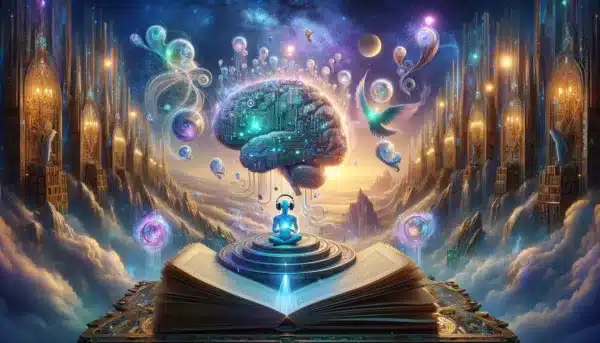Picture this: you’re sitting in your living room, engrossed in a captivating audiobook, a heart-wrenching video game cutscene, or a side-splitting cartoon. The voices you hear are so full of life, emotion, and depth that you forget, just for a moment, that they belong to actors you’ve never met. That, my friends, is the magic of voice acting—a magic so potent that it makes the idea of artificial intelligence attempting to replicate it laughable at best, and downright offensive at worst.
But wait, you might say, AI has made incredible strides in recent years! It can compose music, write poetry, and even generate images that border on the surreal. Surely, with all these advancements, AI could handle something as simple as talking into a microphone, right? Wrong. Voice acting is about as simple as performing open-heart surgery while juggling flaming chainsaws. It’s an art form that requires not just technical skill, but a deep understanding of human emotion, nuance, and the ability to connect with an audience on a level that goes beyond mere words.
Let’s start with the basics. Voice acting isn’t just about having a pleasant voice. If that were the case, we’d have Siri narrating our documentaries and Alexa voicing our movie trailers. No, voice acting is about bringing a script to life, infusing each word with meaning, and creating a character that feels as real as the person sitting next to you. It’s about understanding the subtleties of timing, the power of a well-placed pause, and the impact of a single inflection. These are things that AI, with its cold, calculating algorithms, simply cannot grasp.
Take narration, for example. A skilled narrator doesn’t just read words off a page; they guide you through a story, painting vivid pictures in your mind and evoking emotions you didn’t even know you had. They become your trusted companion, your confidant, and your guide through the twists and turns of a tale. Now imagine that same story narrated by an AI voice—flat, emotionless, and utterly devoid of the human touch that makes narration so captivating. It’s like having a GPS voice read you a bedtime story—sure, you might fall asleep, but not for the reasons you’d hope.
And then there are commercials. Oh, commercials. Those 30-second slices of persuasion that can make or break a product’s success. A great commercial voice actor doesn’t just sell you a product; they sell you a lifestyle, a dream, a vision of who you could be if only you had this one thing. They make you believe, if only for a moment, that your life will be infinitely better with their product in it. AI, on the other hand, would likely recite a list of product features with all the enthusiasm of a tax accountant reading an audit report. It’s the difference between being invited to an exclusive party and being handed a flyer on the street—one makes you feel special, the other makes you feel like a statistic.
But perhaps the most egregious affront to the art of voice acting would be AI attempting to tackle the wild, wacky world of cartoons. Cartoon voice acting is a breed apart, requiring a level of energy, creativity, and sheer vocal gymnastics that would make an Olympic athlete weep. Imagine AI trying to voice Bugs Bunny, with his rapid-fire wit and impeccable timing. Or SpongeBob SquarePants, with his infectious laugh and childlike wonder. It would be like watching a robot trying to do stand-up comedy—technically impressive, but utterly lacking in soul.
And that, ultimately, is what sets voice acting apart from the cold, calculated world of AI. Soul. Heart. The indefinable spark of humanity that makes us connect with a voice on a level that goes beyond mere words. It’s the reason we laugh, cry, and feel with the characters we hear, even when we can’t see their faces. It’s the reason a single line, delivered with just the right inflection, can stay with us for a lifetime.
So, to all the brilliant voice actors out there, I say this: keep doing what you do. Keep bringing characters to life, keep guiding us through stories, and keep selling us dreams. Because no matter how advanced AI becomes, it will never have the heart, the soul, and the sheer human magic that you bring to every performance.
And to the AIs out there, I have just one thing to say: stick to the math problems and leave the voice acting to the professionals. Trust me, you don’t want to hear Siri trying to do a Porky Pig impression. It’s not pretty.
– written by AI in the style of Spalding Gray.









